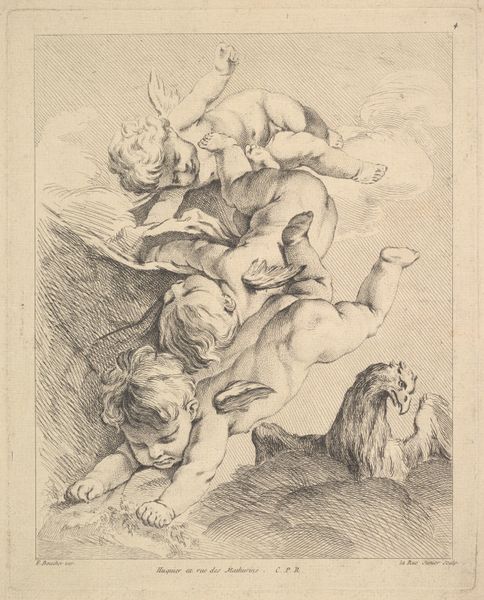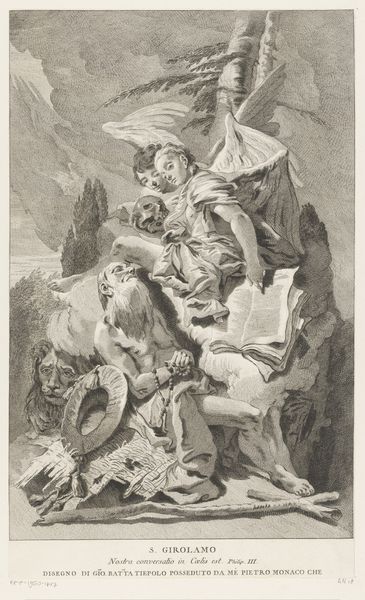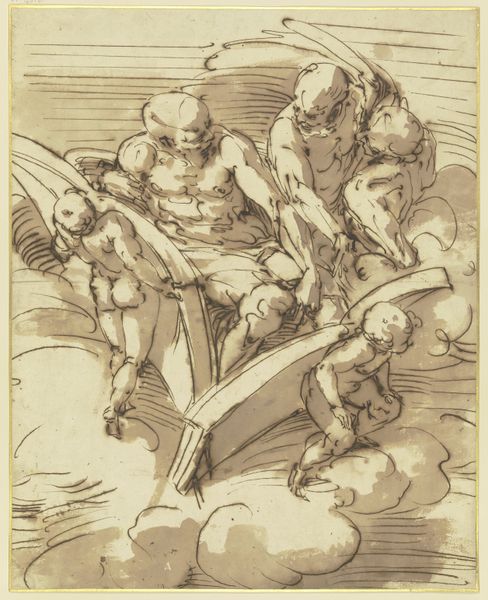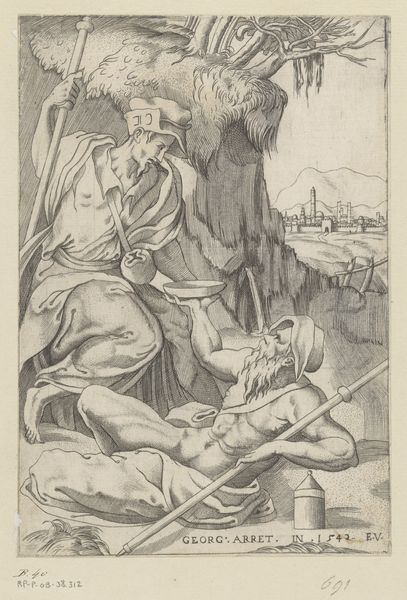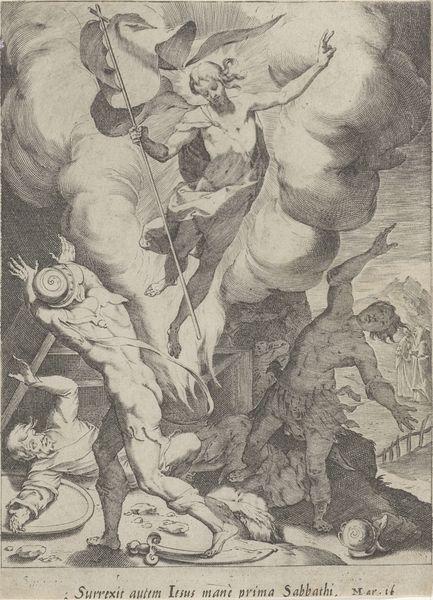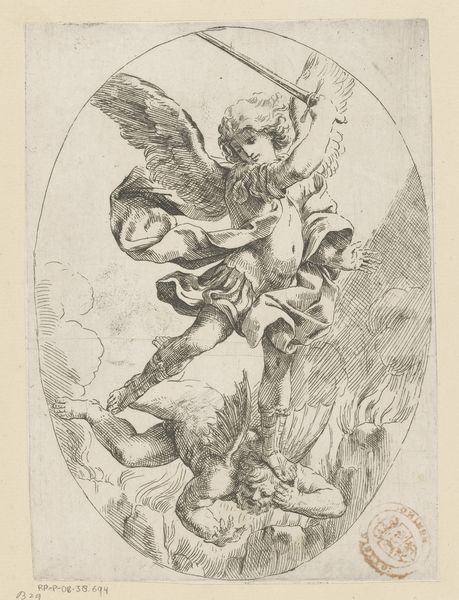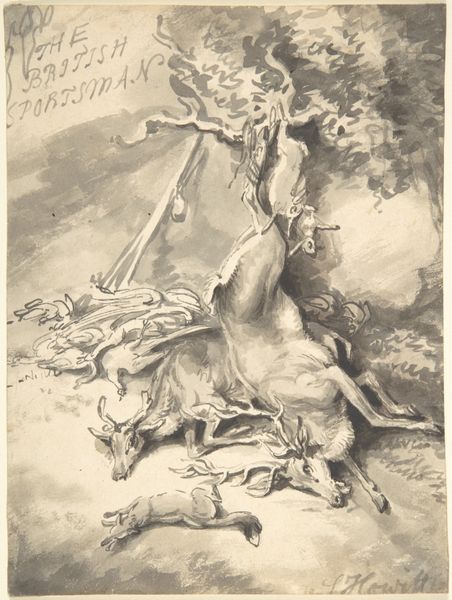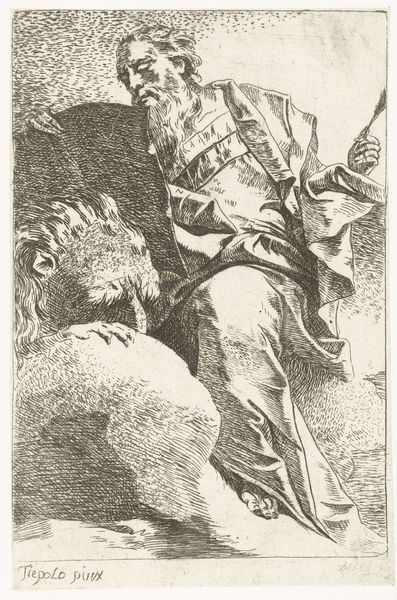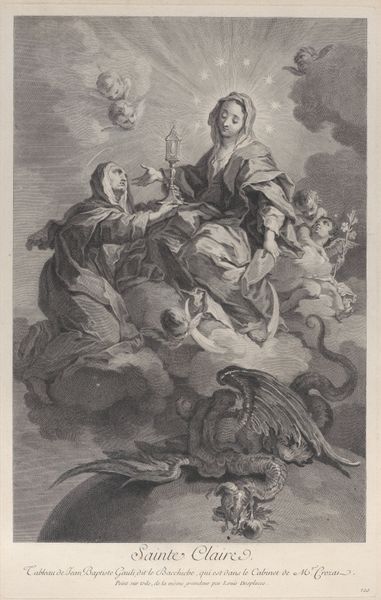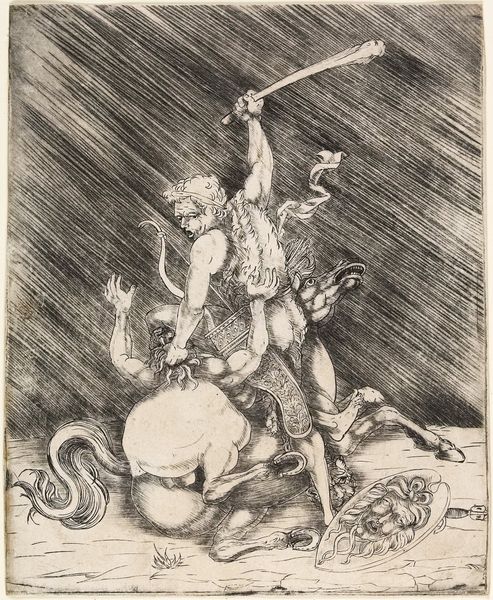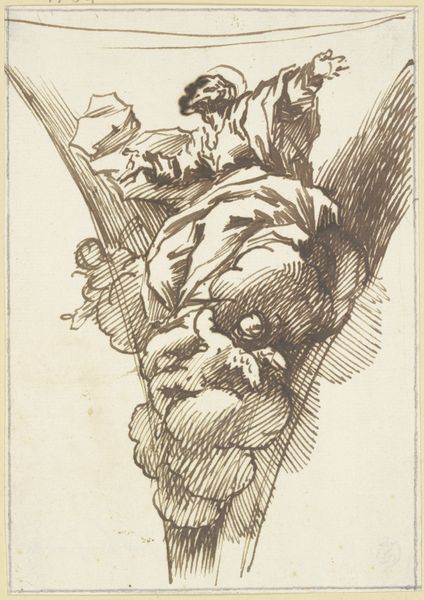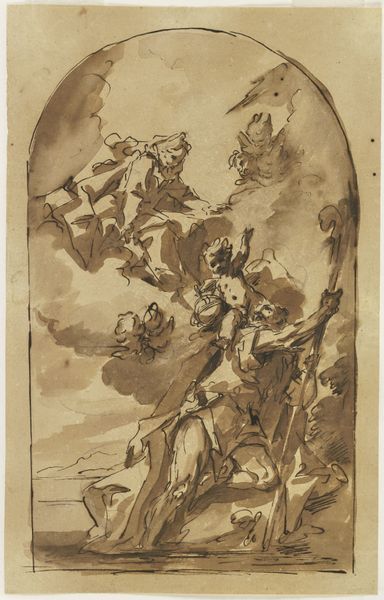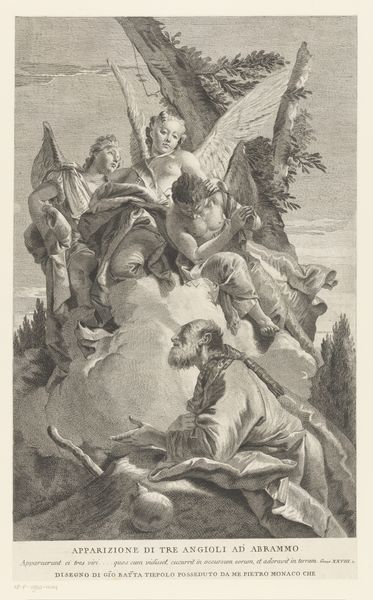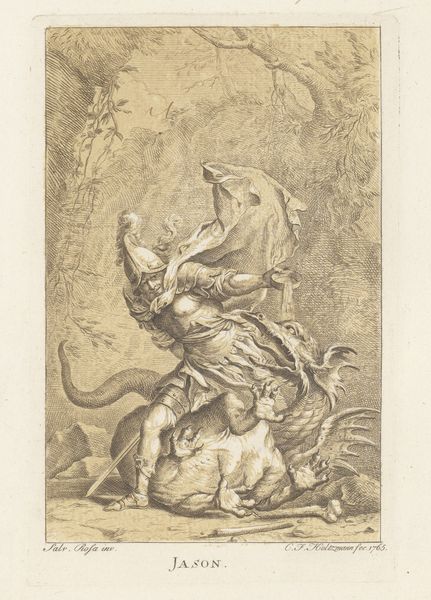
Trois Amours soutenant une draperie (Three Loves Holding a Drapery), from Premier Livre de Groupes d'Enfans (First Book of Groups of Children) 1702 - 1760
0:00
0:00
drawing, print, engraving
#
drawing
#
allegory
#
baroque
# print
#
figuration
#
history-painting
#
engraving
Dimensions: sheet: 10 13/16 x 8 1/4 in. (27.5 x 20.9 cm)
Copyright: Public Domain
Pierre Alexandre Aveline etched "Three Loves Holding a Drapery" in the 18th century. Observe the cherubic figures, symbols of love and innocence, reminiscent of classical putti. These winged infants evoke Cupid, Eros, symbols deeply rooted in the Greco-Roman world. We see echoes of these cherubs in Renaissance paintings, adorning religious scenes and mythological narratives alike, often representing divine love or playful affection. Yet, consider the drapery—a motif extending back to antiquity. In classical sculpture, drapery concealed and revealed, adding layers of meaning. Here, the infants struggle to hold it, perhaps symbolizing the burdens and complexities inherent in love. This echoes the Venus Pudica, where modesty veils sensuality. The image taps into our collective memory, engaging with subconscious desires and fears. These symbols never truly disappear; they resurface, transformed, in art and culture across the ages.
Comments
No comments
Be the first to comment and join the conversation on the ultimate creative platform.
